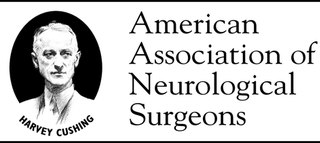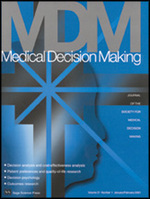Evidence-based medicine (EBM) is "the conscientious, explicit and judicious use of current best evidence in making decisions about the care of individual patients." The aim of EBM is to integrate the experience of the clinician, the values of the patient, and the best available scientific information to guide decision-making about clinical management. The term was originally used to describe an approach to teaching the practice of medicine and improving decisions by individual physicians about individual patients.
The Robert Wood Johnson Foundation (RWJF) is an American philanthropic organization. It is the largest one focused solely on health. Based in Princeton, New Jersey, the foundation focuses on access to health care, public health, health equity, leadership and training, and changing systems to address barriers to health. RWJF has been credited with helping to develop the 911 emergency system, reducing tobacco use among Americans, lowering rates of unwanted teenage pregnancies, and improving perceptions of hospice care.
John E. "Jack" Wennberg is the pioneer and leading researcher of unwarranted variation in the healthcare industry. In four decades of work, Wennberg has documented the geographic variation in the healthcare that patients receive in the United States. In 1988, he founded the Center for the Evaluative Clinical Sciences at Dartmouth Medical School to address that unwarranted variation in healthcare.

The American Association of Neurological Surgeons (AANS) is a scientific and educational association focused on advancing the specialty of neurological surgery. The organization has over 8,000 members around the world. It is one of the five Continental Associations of the World Federation of Neurosurgical Societies (WFNS), the other four being the AASNS, CAANS, EANS and FLANC.
Patient participation is a trend that arose in answer to medical paternalism. Informed consent is a process where patients make decisions informed by the advice of medical professionals.
Shared decision-making in medicine (SDM) is a process in which both the patient and physician contribute to the medical decision-making process and agree on treatment decisions. Health care providers explain treatments and alternatives to patients and help them choose the treatment option that best aligns with their preferences as well as their unique cultural and personal beliefs.
David M. Eddy is an American physician, mathematician, and healthcare analyst who has done seminal work in mathematical modeling of diseases, clinical practice guidelines, and evidence-based medicine. Four highlights of his career have been summarized by the Institute of Medicine of the National Academy of Sciences: "more than 25 years ago, Eddy wrote the seminal paper on the role of guidelines in medical decision-making, the first Markov model applied to clinical problems, and the original criteria for coverage decisions; he was the first to use and publish the term 'evidence-based'."

Neil Barnett Shulman was an American doctor and medical writer, who was an Associate Professor in the School of Medicine at Emory University. He conducted and published clinical research on hypertension and was the co-founder of the International Society on Hypertension in Blacks. He was also the author of many books promoting medical literacy for both adults and children, as well as humour and children's books. He was the associate producer of the 1991 film Doc Hollywood, based on one of his books.
AcademyHealth is a nonpartisan, nonprofit professional organization dedicated to advancing the fields of health services research and health policy. It is a professional organization for health services researchers, health policy analysts, and health practitioners, and it is a nonpartisan source for health research and policy. The organization was founded in 2000, in a merger between the Alpha Center and the Association for Health Services Research (AHSR). In 2008, the organization had approximately 4000 health services researcher members.

Medical Decision Making is a peer-reviewed academic journal that publishes papers in the fields of decision-making and medical informatics. Its editor-in-chief is Brian Zikmund-Fisher. It was established in 1981 and is currently published by SAGE Publications on behalf of the Society for Medical Decision Making. A sister open access journal focusing on applications of medical decision making, Medical Decision Making Policy & Practice, began publishing in 2016.
Paul Murdock Ellwood Jr. was an American physician and a controversial figure in American health care. Often referred to as the "father of the health maintenance organization", he not only coined the term, he also played a role in bringing about structural changes to the American health care system to simultaneously control cost and promote health by replacing fee-for-service with prepaid, comprehensive care. The term "HMO" was coined by Ellwood in a January 1970 Fortune magazine article. More recently, he had advanced an agenda for monitoring health outcomes, so that patients, providers, and payers can make health care decisions based on real information about what treatments and providers are actually effective.
Scott B. Ransom has worked across the healthcare ecosystem as a physician, researcher, teacher, author, executive, strategy consultant and investor.

David Bates is an American-born physician, biomedical informatician, and professor, who is internationally renowned for his work regarding the use of health information technology (HIT) to improve the safety and quality of healthcare, in particular by using clinical decision support. Bates has done work in the area of medication safety. He began by describing the epidemiology of harm caused by medications, first in hospitalized patients and then in other settings such as the home and nursing homes. Subsequently, he demonstrated that by implementing computerized physician order entry (CPOE), medication safety could be dramatically improved in hospitals. This work led the Leapfrog Group to call CPOE one of the four changes that would most improve the safety of U.S. healthcare. It also helped hospitals to justify investing in electronic health records and in particular, CPOE. Throughout his career, Bates has published over 600 peer reviewed articles and is the most cited researcher in the fields of both patient safety and biomedical informatics, with an h-index of 115. In a 2013 analysis published by the European Journal of Clinical Investigation, he ranked among the top 400 living biomedical researchers of any type. He is currently editor of the Journal of Patient Safety.
The Society for Vascular Surgery (SVS) is the major national academic society for vascular surgery in the United States. Its mission includes education, research, career development and advocacy. The SVS is the national advocate for more than 6,000 specialty-trained vascular surgeons and other medical professionals who are dedicated to the prevention and cure of vascular disease. The association was founded in 1946. The SVS is the sponsor organization for the Journal of Vascular Surgery (JVS) and for the national Vascular Annual Meeting (VAM).
ISPOR—The Professional Society for Health Economics and Outcomes Research, better known as ISPOR, is a nonprofit global professional organization in health economics and outcomes research. It was founded in 1995 as an international multidisciplinary professional organization that advances the policy, science, and practice of pharmacoeconomics and outcomes research. The society's mission is to promote health economics and outcomes research to improve decision making for health globally.
Annette Marie Cormier O'Connor is a distinguished professor and professor emerita at the School of Nursing at the University of Ottawa and a fellow of the Royal Society of Canada and Canadian Academy of Health Sciences. She is a Tier 1 Canada Research Chair in Healthcare Consumer Decision Support and was awarded the Order of Canada in 2018.
Floyd J (Jack) Fowler Jr. is an American researcher, academic and author. He is a Senior Research Fellow at Center for Survey Research at the University of Massachusetts Boston. He is an early contributor to research on patient-reported outcomes after treatment for various conditions including benign prostate disease, benign uterine conditions and prostate cancer. He also led survey projects to understand the causes and consequences of variation in the way medical care is delivered.
Kathryn McDonald is an American scientist who is Bloomberg Distinguished Professor at the Johns Hopkins University. She serves as co-director of the Johns Hopkins Center for Diagnostic Excellence. McDonald previously led the Centre for Health Policy at Freeman Spogli Institute for International Studies. Her research considers what makes for high-quality and safe healthcare delivery systems.

Donald L. Patrick is a social scientist, academic, and an author. He is a Professor Emeritus of Health Systems and Population Health at the University of Washington, Director of Seattle Quality of Life Group, and Creator of the Biobehavioral Cancer Prevention and Control Training Program jointly with the Fred Hutchinson Cancer Center. He has served as the co-chair of the Cochrane Collaboration's Patient Reported Outcomes Methods Group. His research interests revolve around various aspects of public health which integrate the themes from fields such as psychological intervention, social stratification, public health, and quality of life. Much of his research works have focused on outcomes research on vulnerable populations, health disparities, and end-of-life-care.





